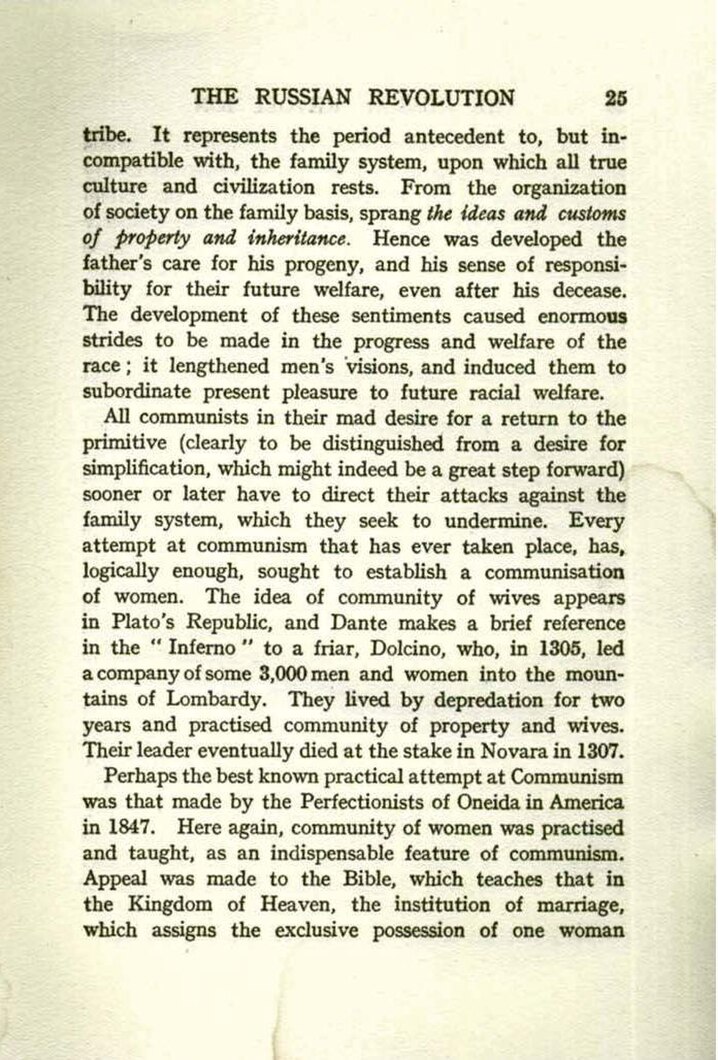tribe. It represents the period antecedent to, but incompatible with, the family system, upon which all true culture and civilization rests. From the organization of society on the family basis, sprang the ideas and customs of property and inheritance. Hence was developed the father's care for his progeny, and his sense of responsibility for their future welfare, even after his decease. The development of these sentiments caused enormous strides to be made in the progress and welfare of the race; it lengthened men’s Visions, and induced them to subordinate present pleasure to future racial welfare.
All communists in their mad desire for a return to the primitive (clearly to be distinguished from a desire for simplification, which might indeed be a great step forward) sooner or later have to direct their attacks against the family system, which they seek to undermine. Every attempt at communism that has ever taken place, has, logically enough, sought to establish a communisation of women. The idea of community of wives appears in Plato's Republic, and Dante makes a brief reference in the "Inferno" to a friar, Dolcino, who, in 1305, led a company of some 3,000 men and women into the mountains of Lombardy. They lived by depredation for two years and practised community of property and wives. Their leader eventually died at the stake in Novara in 1307.
Perhaps the best known practical attempt at Communism was that made by the Perfectionists of Oneida in America in 1847. Here again, community of women was practised and taught, as an indispensable feature of communism. Appeal was made to the Bible, which teaches that in the Kingdom of Heaven, the institution of marriage, which assigns the exclusive possession of one woman
